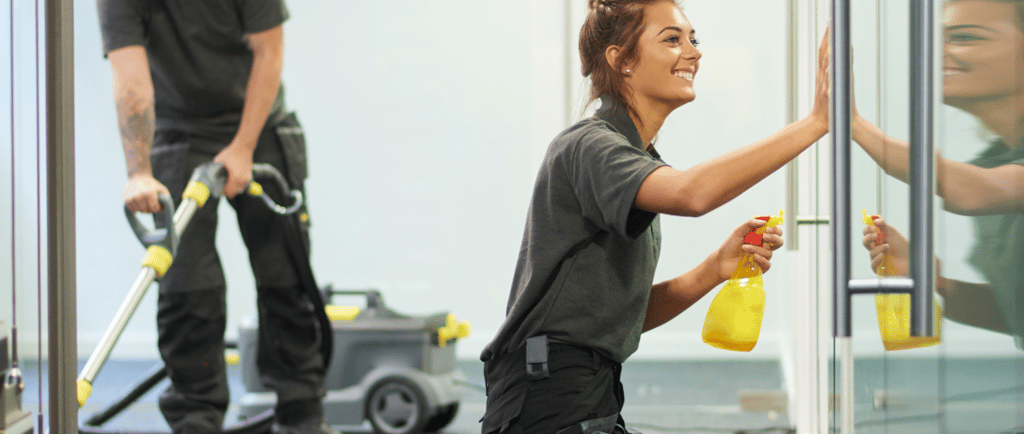How to Get Your Commercial Property Ready for an Inspection
Preparing your commercial property for an inspection is an important step in ensuring the selling process runs smoothly. Whether you're selling, leasing, or simply conducting routine maintenance, a commercial property inspection can help identify potential issues before they become costly repairs. At JCJ Commercial Inspections, we’ve compiled a simple guide on how to prepare your property so that our inspectors can do their job thoroughly and you get the most out of the inspection.
COMMERCIAL


Preparing your commercial property for an inspection is an important step in ensuring the selling process runs smoothly. Whether you're selling, leasing, or simply conducting routine maintenance, a commercial property inspection can help identify potential issues before they become costly repairs. At JCJ Commercial Inspections, we’ve compiled a simple guide on how to prepare your property so that our inspectors can do their job thoroughly and you get the most out of the inspection.
1. Clear Access to All Areas
One of the most important steps in preparing for an inspection is ensuring that the inspector has access to all parts of the property. Make sure doors are unlocked and key areas are easily accessible, including:
Utility Rooms: Inspectors will need to assess electrical panels, HVAC systems, water heaters, and other utilities.
Roof Access: If your property has a rooftop HVAC system or other structures, make sure there's a safe way for the inspector to reach the roof.
Storage Areas: Whether it’s a basement, attic, or storage room, these spaces can often house critical systems like plumbing or structural supports that need to be inspected.
2. Clear Debris and Clutter
Remove any unnecessary items that could block access to important areas or systems, such as:
Hallways, stairwells, and entrances.
Around HVAC units, plumbing access points, and electrical panels.
Parking lots, driveways, and loading zones.
A clean and clutter-free property allows inspectors to complete their work efficiently, making it easier to spot any potential issues.
3. Prepare Utility Systems
During a commercial inspection, the property’s electrical, plumbing, and HVAC systems will be examined. Ensure these systems are operational and accessible:
Turn on the Power: Make sure all electrical systems are functional, including lighting, outlets, and breaker panels.
Check HVAC Systems: Inspectors will need to test heating, ventilation, and air conditioning systems. Ensure filters are clean and units are easily accessible.
Ensure Plumbing is Operational: Make sure water supplies are turned on and all fixtures (toilets, sinks, etc.) are in working order.
4. Fix Minor Repairs Ahead of Time
If there are small issues you already know about, like leaky faucets, burned-out lightbulbs, or malfunctioning doors, take the time to fix them before the inspection. While these may seem minor, addressing them can help ensure the inspection goes smoothly and doesn’t get bogged down with small issues that can be easily resolved beforehand.
5. Ensure Fire and Safety Systems are Up to Code
Fire and safety systems are crucial for any commercial property. Make sure that:
Fire extinguishers are properly mounted and not expired.
Smoke detectors and fire alarms are functional.
Emergency exits are clearly marked and unobstructed.
Sprinkler systems (if applicable) are up-to-date with required testing and maintenance.
Safety systems are a top priority during an inspection, and making sure they are fully functional can prevent delays or failed inspections.
6. Provide Documentation and Records
If available, gather any maintenance records, warranties, or documentation related to the building's systems, such as HVAC units, roofing, electrical work, or plumbing installations. This can help inspectors better understand the history of the property and identify areas that may need closer attention.
7. Communicate Special Instructions
If there are any areas of the property that need special consideration, such as recent repairs, known problem areas, or difficult-to-access spots, make sure to communicate these to the inspector in advance. This helps avoid confusion and ensures a more efficient inspection process.
8. Plan for the Inspection Day
If your property is occupied by tenants or employees, notify them in advance about the inspection. Make sure they know that inspectors will need access to various areas of the property, which may cause some minor disruptions.
If you're scheduling the inspection outside of business hours, ensure that someone is available to grant access to the property and assist the inspectors with any needs during their visit.
Preparing your commercial property for an inspection doesn’t have to be complicated. By following these simple steps, you’ll ensure a smooth, thorough inspection that identifies any potential problems early. At JCJ Commercial Inspections, we’re here to help you through every step of the process, making sure your property is safe, functional, and ready for your business or tenants.
Ready to schedule your commercial inspection? Contact us today, and we’ll help ensure your property is fully prepared and inspected with precision and care.